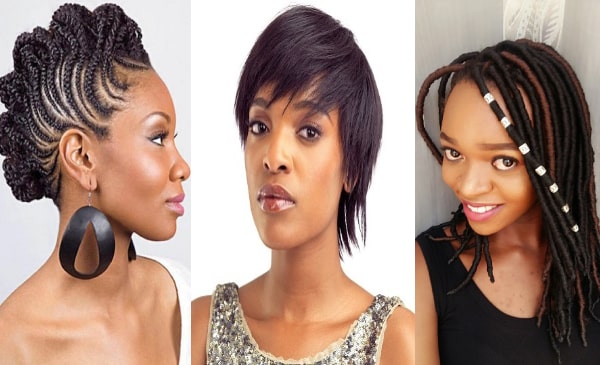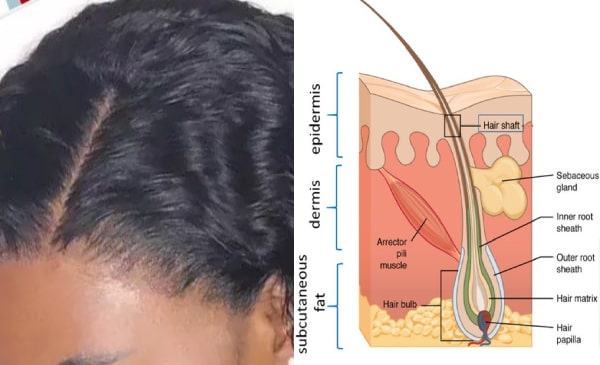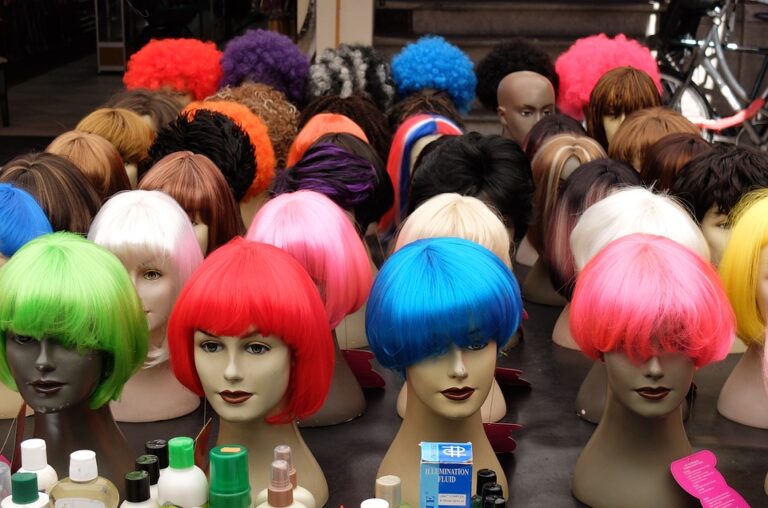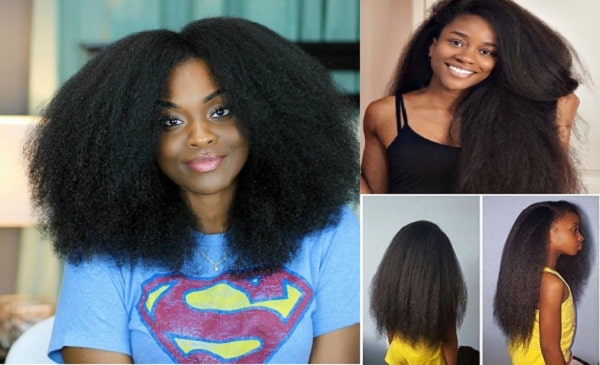How To Bleach Hair At Home: Step By Step Guide (Easiest 8)
Learning how to bleach hair at home is quite easy and also inexpensive. If you wish to make your blonde, you will need to learn how to bleach your hair. Also if you want to apply a bright pastel hair color or dye your hair at home, you will have to lighten your hair color with bleach.
If you have the right bleach equipment, then bleaching your hair at home will even be more convenient for you. We have detailed how you can bleach your hair at home and some of the equipment you will need to bleach your hair.
How To Bleach Hair At Home: Step By Step Guide
1. Prepare Your Hair
This is the first step of bleaching your hair at home. Knowing how to bleach your hair at home will start with preparing your hair with the right hair care products. Bleaching your hair can cause hair damage if you do not properly condition your hair before bleaching.
Your hair needs to be in a healthy condition to be bleached. This will include making sure that there is adequate moisture in your hair before you bleach it. You should start preparing your hair in between two to four weeks. You can even stop heat styling your hair, using shampoos, and hair care products that contain sulfates and alcohol, to prevent moisture loss from your hair.
When prepping your hair, you should first section your hair into four parts, then massage coconut oil from the root to the tip to hydrate your hair. Bleaching your hair works best on virgin and unprocessed hair; if you have Virgin hair, you should first work with virgin oil.
You may visit natural hair salons to prep your hair if you have not been using Coconut oil. Coconut oil has added protection and conditioning effects in lightening hair. You should allow the coconut oil to go in well into the sectioned hair for at least one hour before you can pre-light or bleach your hair.
2. Gather your materials
The second step of how to bleach hair at home is to gather your hair care equipments. You need to get all the supplies you need before bleaching your hair.
- Bleach Powder: You can get bleach powder from top hair care brands like Wella, Matrix, Blondor, or Salon Care. Blue or purple bleach helps to reduce brassiness.
- Lightener: This is the second activator in a bleach mixture that causes the actual lightening of the hair. It is usually in powdered form.
- Developer/Peroxide: This serves as the liquid base for your bleach and toner mixture. The peroxide liquid activates the bleach so that it can lighten your hair. The different volumes indicate the strength of the peroxide. Level 1 hair developer is the darkest hair level, which is black, while 10 is the lightest hair level – pale blonde.
- Vol 10 & Vol 20 – This volume will not work for dark hair. It is ideal for subtly fading dyed hair or lifting 1-2 levels of color on hair that is already light. Volume 20 developer works best on light brown hair color and also lifts about 2 to 3 levels of color.
- Vol 30 – If you want to bleach your hair to the lightest blonde, a volume 30 developer can help lift 3 to 4 levels of hair color, but may irritate sensitive skin.
- Vol 40 – Volume 40 provides a high lift and should not be left longer than 10-15 minutes to minimize hair damage.
Other equipments for bleaching the hair
- Toner: Neutralizes brassy hair
- Balancing Shampoo: Also tones the brassiness of your hair and helps neutralize yellow and orange hues.
- Tinting brush
- Latex/Plastic gloves
- Glass/Plastic mixing bowl
- Clips for sectioning the hair
- Shower cap/ Plastic bag
- Old towels and clothes
- Protein balancing conditioner
3. Mixing the product
Mixing the product is step 3 of how to bleach hair at home. Once you have gathered all the necessary materials and have prepped your hair, then you are ready to make the bleach mixture. Set up a well-ventilated room with good lighting and a mirror. Put on some old clothes and your gloves.
To mix the bleach powder and developer, add the bleach and developer to a mixing bowl, mix consistently and make sure that there are no lumps. You can use a painting brush for the mixing. Most lightener and developer brands recommend that the best bleach mix is in a 2:1 ratio (This means, two parts of the developer to one part lightener).
You can also make two bleach mixtures using different levels of the developer. For instance, one bleach mixture with a 20v developer will be used for the roots, while another bleach mixture with a 30v developer will be used on the length of your hair.
4. Application
The fourth step of how to bleach hair at home is to apply the bleach. Section your hair and start applying the bleach. Once you are done covering all of your hair in the bleach, cover your hair with a plastic bag or shower cap.
When bleaching your hair, you should start with the tips, then the mid-lengths of your hair which take longer to lighten, before your roots. Allow the bleach to sit for at least 20 minutes before bleaching your hair roots. That is all for step 4 of how to bleach hair at home
5. Wait
Step 5 of how to bleach hair at home is simply to wait. Processing time depends on the recommendation of the manufacturers of the hair developer. Also, the hair level or shade you start with and the hair color you want to achieve will mark how long the bleach mixture should stay on your head.
However, do not leave the bleach on for over 30 to 45 minutes. Dark hair will normally turn orange when lightened. Also, check for redness, and burning signs on your hair; you can visit a doctor after you have washed the bleach off.
6. Wash your hair
Sixth on the list of how to bleach hair at home is to wash your hair. Use lukewarm water to rinse the bleach out thoroughly.
You can now wash your hair with a balancing shampoo to level out the pH of your scalp. Use a protein-balancing conditioner to supplement the effects of the shampoo, then let your hair air dry. It is not always advisable to go in with hair relaxers.
7. Assess And Bleach Again (If Necessary)
The seventh step for how to bleach hair at home is reassessment. If your hair still looks orange or yellow, then you might have to bleach it again. You should determine your hair level to check if you need to bleach your hair again. Follow steps 3 to 6, if you do need to bleach again. But after this, you will have to wait for some days before going in for another bleach treatment.
8. Toner
Step 8 of how to bleach hair at home is the toning process. A toner helps to neutralize any brassiness, orange or yellow hues that remain in your hair after bleaching. Before you tone your hair, make sure that it is light enough and properly lifted; if not, you may create an unpleasant color.
You can apply toner on slightly damp hair, using the same 2:1 mixing ratio and application methods as you did with the bleach. You can wash and shampoo after you have waited for 20 to 25 minutes, then gently follow up with a conditioner.
How To Repair/Strengthen Your Hair After Bleaching It
Post-Bleaching Hair Care
- Oil Your Hair: You would want to keep your hair moisture all the time, now that you have bleached your hair. Coconut oil works best to strengthen hair and provides deep nourishment after the bleaching process. Oil your hair repeatedly at least twice a week. You may use hair growth creams in place of the oils.
- Minimize Conditioner Usage: After bleaching your hair, you should cut down on your use of conditioners; you can limit your conditioner usage to only once a week until your hair gains back to its full strength.
- Do Not Use Styling Tools: The heat of styling tools can damage your hair and this is even worse after bleaching your hair. You can keep away from styling tools for about two weeks.
- Use Natural/Organic Products Or Dilute Your Shampoo: The chemicals in shampoo can damage your hair, more aggressively after you have bleached it. You should allow your hair for some time before you can carry on with the normal procedures of how to take care of your hair at home.
Conclusion
Bleaching your hair may be what you want, but the process has its side effects.
What Are The Side Effects Of Bleaching?
The alkylating (ammonium hydroxide) and oxidizing (hydrogen peroxide) agents contained in the bleach reduce the natural hair color and break down the melanin in your hair cuticle.
This may result in significant hair loss and damages like scalp burns, protein loss, decreased porosity, easy permeability of hair strands, and skin irritation. Most professionals advise that it is still best to visit a hairstylist salon if you want to bleach hair at home.



![5 Best Hair Dyes For Natural Hair in Nigeria [+Prices] Best Hair Dyes For Natural Hair in Nigeria](https://eucarlcosmetics.com/wp-content/uploads/2022/02/ezgif.com-gif-maker-14-768x512.webp)


